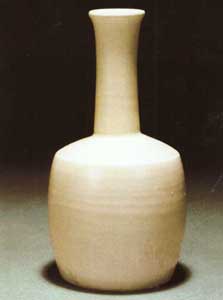| Legole.Com Discover china. Explore the beauty and wonder of the land, people, and culture of China. |
 |
|
|
 |
| |
 In 959, following the death of Emperor Shizong who had been a wise monarch, a seven year old child succeeded to the throne as Emperor Gong. In the next year, Zhao Kuangyin seized power and forced Emperor Gong to abdicate in his favour. Zhao took the name Taizu and established his capital city in Dongjing (present city of Kaifeng). His first task was to ensure that there would be no further military coups and he did this by establishing a professional army loyal to the dynasty with its military commanders under the strict control of the central government. For the remainder of his reign, Taizu concentrated his efforts upon winning over the southern states. Such was his success that by the time of his death in 976 apart from Zhejiang, Shanxi, Nanzhao and the area ruled by the Qidan, the country had come under Song control. The activities of the warlords had been brought to an end. In 959, following the death of Emperor Shizong who had been a wise monarch, a seven year old child succeeded to the throne as Emperor Gong. In the next year, Zhao Kuangyin seized power and forced Emperor Gong to abdicate in his favour. Zhao took the name Taizu and established his capital city in Dongjing (present city of Kaifeng). His first task was to ensure that there would be no further military coups and he did this by establishing a professional army loyal to the dynasty with its military commanders under the strict control of the central government. For the remainder of his reign, Taizu concentrated his efforts upon winning over the southern states. Such was his success that by the time of his death in 976 apart from Zhejiang, Shanxi, Nanzhao and the area ruled by the Qidan, the country had come under Song control. The activities of the warlords had been brought to an end.
Taizu was succeeded by his brother, Taizong who brought Zhejiang and Shanxi back into the fold. He was unsuccessful in his two attempts to drive out the Qidan and was forced to deal with them on equal terms. From then on the Song Dynasty sought to defend its borders against invasion and unlike the Tang never ruled a universal empire.
Important steps were taken to strengthen the administration under the autocratic control of the emperor. These developments were supported by important changes in the recruitment to the bureaucracy and the running of the examination system. The control over the military and the replacement of aristocratic power with something akin to a meritocracy brought about a stability that allowed the country to enjoy a period of prosperity due to the expansion of industry, commerce and agriculture. These factors in turn led to the development of new cities as centres of administration, trade, commerce and industry.
The period of reforms lasted until the death of Emperor Shenzong in 1086. From that time onwards there was a decline due to differences between ruling factions and rebellions by peasants. The increased military skills of the three rival powers, the Liao, Jin and Western Xia meant they were able to take advantage of the weakened country and in 1126 the Jin army conquered Kaifeng after a long siege. In the following year the Northern Song Emperor was deposed and along with his son was taken off to Manchuria.
|
|
|
 |
|
|
 |
|
